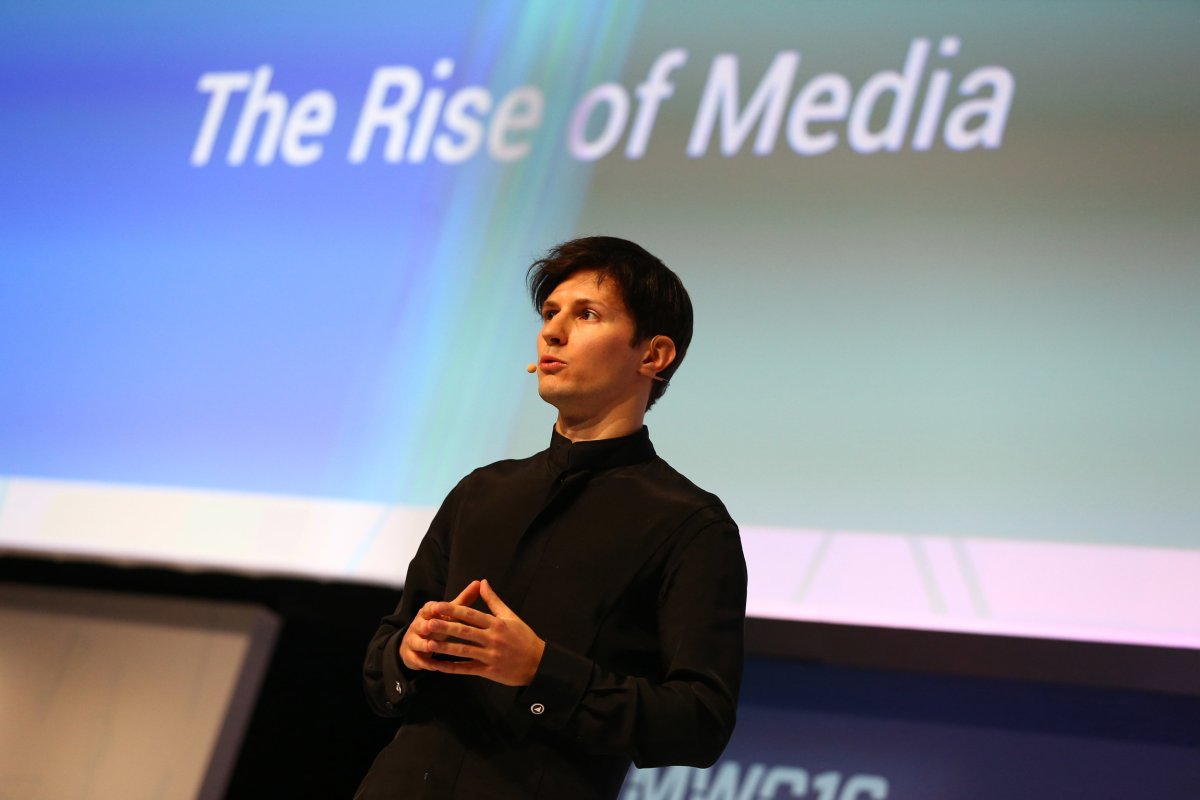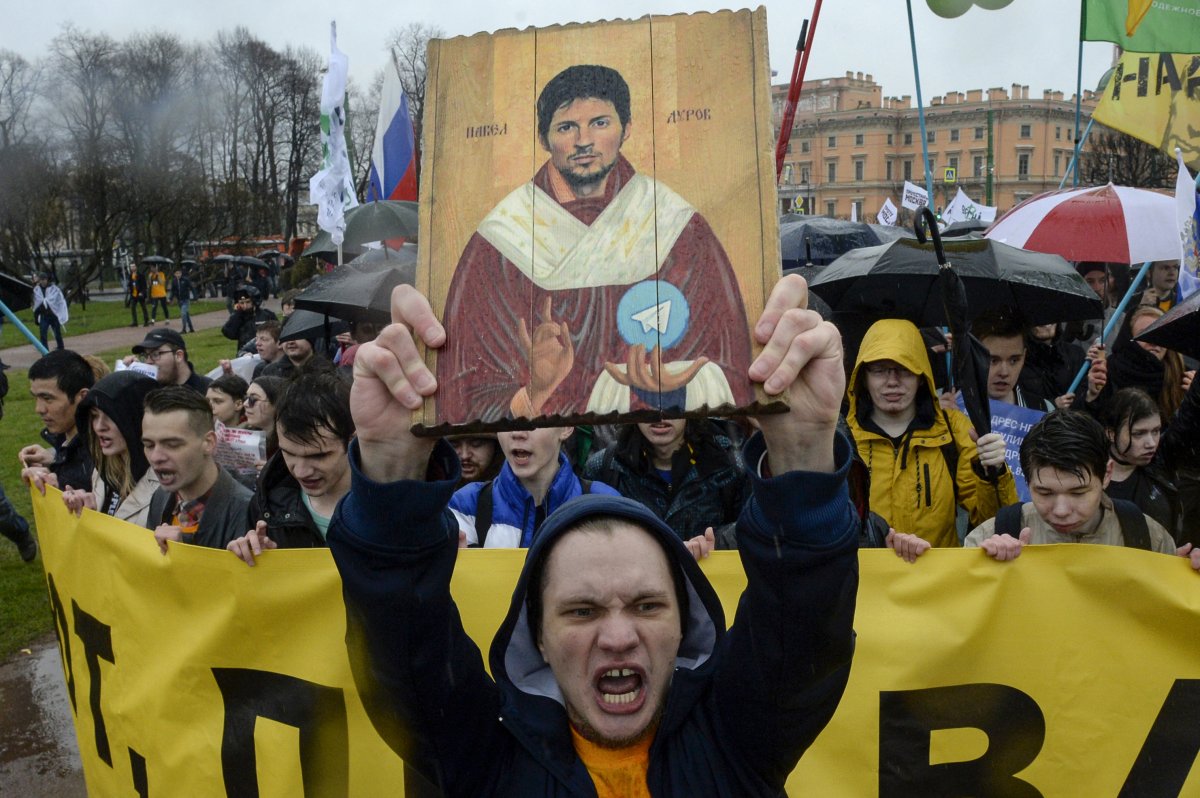French prosecutors are set to decide the fate of Telegram CEO Pavel Durov as his police custody order nears expiration.
Authorities will have no choice but to release or charge Durov, the 39-year-old founder of the popular messaging app, as their 96-hour detainment limit approaches.
He was detained on Saturday at Le Bourget airport near Paris, following a visit to Azerbaijan.
Durov’s detention stems from a judicial inquiry into 12 alleged criminal violations, including accusations that Telegram has been used for selling child sexual abuse material, drug trafficking, and fraud.
The Paris prosecutor’s office elected to extend his stay in custody by a further 48 hours on Monday.

Telegram founder and CEO Pavel Durov delivers his keynote conference during day two of the Mobile World Congress at the Fira Gran Via complex in Barcelona, Spain on Feb. 23, 2016. France is the first of several countries to raise concerns about Telegram’s lack of stringent content moderation.
AOP.Press/Corbis via Getty Images
Durov’s arrest provoked mixed reactions internationally. In Russia, officials condemned the move as politically motivated, accusing the West of double standards on freedom of speech.
This contrasts with Russia’s previous failed attempt to ban Telegram in 2018, later lifted in 2020.
Iran’s Supreme Leader Ayatollah Ali Khamenei also commented, praising France’s “strict” stance on internet governance. Repeated limitations placed on citizen usage culminated in an official ban during the country’s 2017-18 anti-government street protests.
Telegram remains a widely used news source in Ukraine, with media outlets and officials utilizing it to provide updates on the war and issue missile and air raid alerts.
French President Emmanuel Macron denied any political motivation behind Durov’s arrest. On X, formerly Twitter, he emphasized France’s commitment to freedom of expression within a legal framework that protects citizens’ rights.
I have seen false information regarding France following the arrest of Pavel Durov.
France is deeply committed to freedom of expression and communication, to innovation, and to the spirit of entrepreneurship. It will remain so.
In a state governed by the rule of law,…
— Emmanuel Macron (@EmmanuelMacron) August 26, 2024
Telegram responded by defending its moderation efforts, insisting that holding a platform responsible for misuse by its users is “absurd.”
In a statement posted on its platform after Durov’s arrest, the app stressed it abides by EU laws and maintained belief in the quality of its moderation.
“It is absurd to claim that a platform or its owner are responsible for abuse of that platform,” the post said. “Almost a billion users globally use Telegram as means of communication and as a source of vital information. We’re awaiting a prompt resolution of this situation. Telegram is with you all.”
In 2022, Germany fined Telegram’s operators $5 million for failing to comply with legal requirements regarding illegal content.
Prior to this, German police warned that the app was becoming a “medium for radicalization,” used by some to target politicians, scientists and doctors for their role in tackling the coronavirus pandemic.

Demonstrators with an icon stylized painting depicting Telegram’s founder Pavel Durov protest against the blocking of the popular messaging app in Russia, during a May Day rally in Saint Petersburg on May 1, 2018. Russia attempted to block the app in 2018, but later rescinded the legislation during the pandemic.
OLGA MALTSEVA/AFP via Getty Images
Since its launch in 2013, Telegram has borne the brunt of legislative resistance, in light of encrypted messaging’s use as a vital tool for dissent and communication.
Telegram’s self-destructing “secret chats” feature end-to-end encryption and other security features that appeal to digital communities looking for an alternative to the market’s dominant Meta-owned platforms WhatsApp and Facebook Messenger.
Now based in Dubai, Durov is a significant figure in the context of Russian digital and political organizing. After founding VKontakte (Russia’s largest social network), he faced pressure from Russian authorities, especially after the 2011-2012 protests against Vladimir Putin‘s government.
These protests were partly organized through social media, leading to increased scrutiny on platforms like VKontakte.
In the aftermath, Durov refused to provide Russian authorities with personal data of Ukrainian protesters and Russian opposition activists.
This refusal led to his ousting from VKontakte, after which he left Russia. Durov’s experiences with government pressure directly influenced the creation of Telegram.
This article includes reporting from The Associated Press








